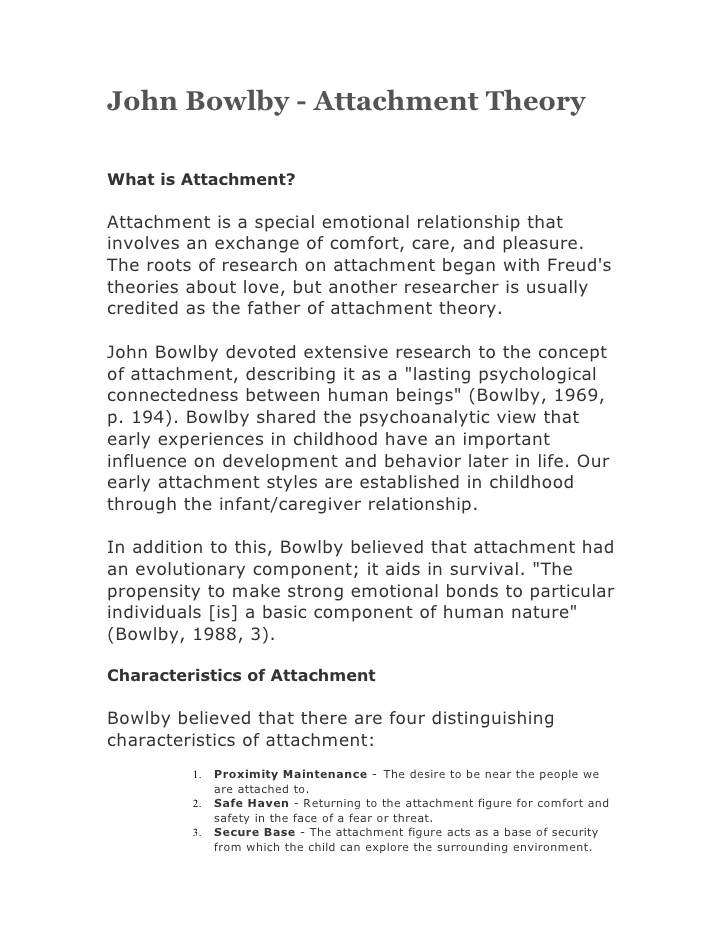The development of a healthy and close bond between the baby and his caregivers is fundamental, does it give you safety and confidence and makes you feel loved and recognized ?, fundamental pillars for its growth and maturity in adulthood. One way or another, the nature of the relationships we establish as children will also determine our intimate relationships throughout our lives. If, as children, we received a proper and healthy attachment, it is likely that as adults we establish the type of relationship we saw when we were little.
Otherwise, if this first condition was negative or dysfunctional, will have a very significant negative influence, the person may suspect, be afraid of being wounded or abandoned, according to evolutionary psychologists, if the relationships of affection in childhood were not adequate There is a great possibility that the thought processes are somewhat negative and that, at some point , the person eventually develops depression.
- The theory of attachment was established by British psychiatrist John Bowlby.
- From an evolutionary perspective it is argued that it is essential that parents establish relationships of affection and continuous care with children.
- This type of interaction allows the little ones to explore their environment safely.
- Knowing that they will be defended and cared for.
- Affection leads to self-recognition and the ability to do things.
- However small.
- When a child is abandoned.
- Abused.
- Or abused.
- The love relationship not only breaks down.
- But also becomes threatening.
- This type of attitude makes us have a certain kind of emotional response: fear.
- Feeling insecurity.
- Bad self-image.
- Mistrust and even anger.
- Are experiences that a child will surely keep forever.
- Causing certain moments of crisis.
- And emotional agitation in your adult life that can very well trigger depression.
According to evolutionary psychologists, people who have experienced this type of negative childhood experience may experience two negative attachment styles:
? Avoid it: it is he who, as an adult, tries to hide his emotions as a defense mechanism, if I do not show it I protect myself and nobody can harm me, it is also likely that he idealized a particular type of relationship, and it seems that nobody is satisfying his needs. As a result, they end up continually failing in their emotional lives. They are demanding but also reluctant; demand but do not know how to offer. Sometimes these ongoing failures end up causing depression.
? The tough ones? Worried: it is this person who lives continuously with the fear of losing their relationships, whether of friendship or love, can be really obsessive, but also self-criticism and a little victimistic, they know that they are hurting others, but they also emphasize their need to be loved, they go through complex states where anxiety and fear of abandonment fill their concerns , to the point of falling into depression.
As we can see, the complexity of the world of child attachment can be decisive; hence the obligation of each parent or guardian to show affection to minors, to give them safety and recognition. Our childhood is the basis of our adult happiness.

